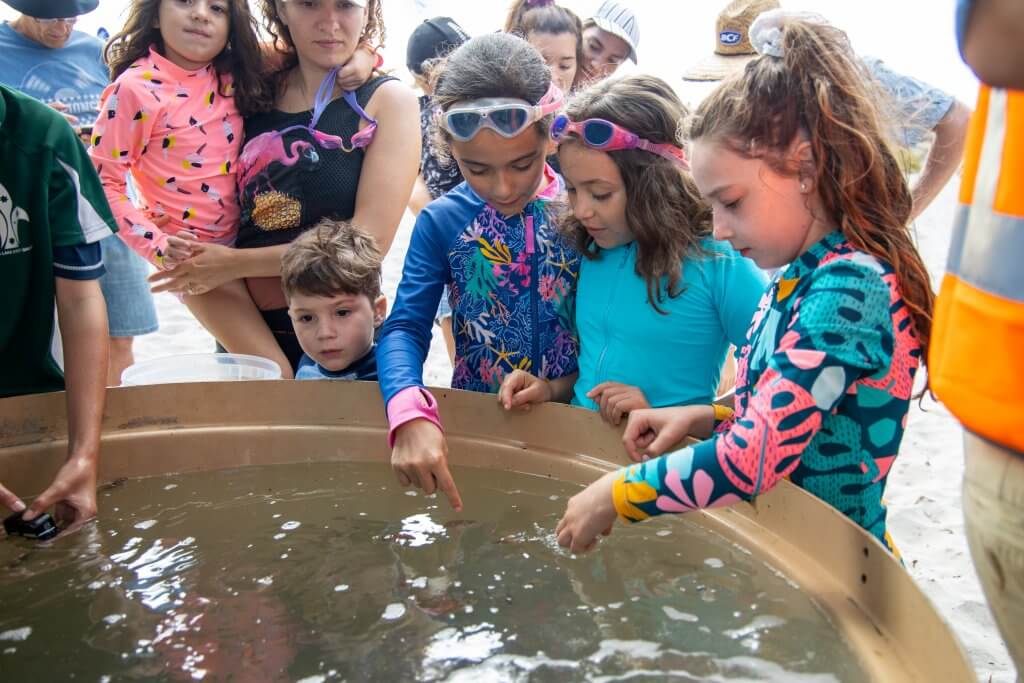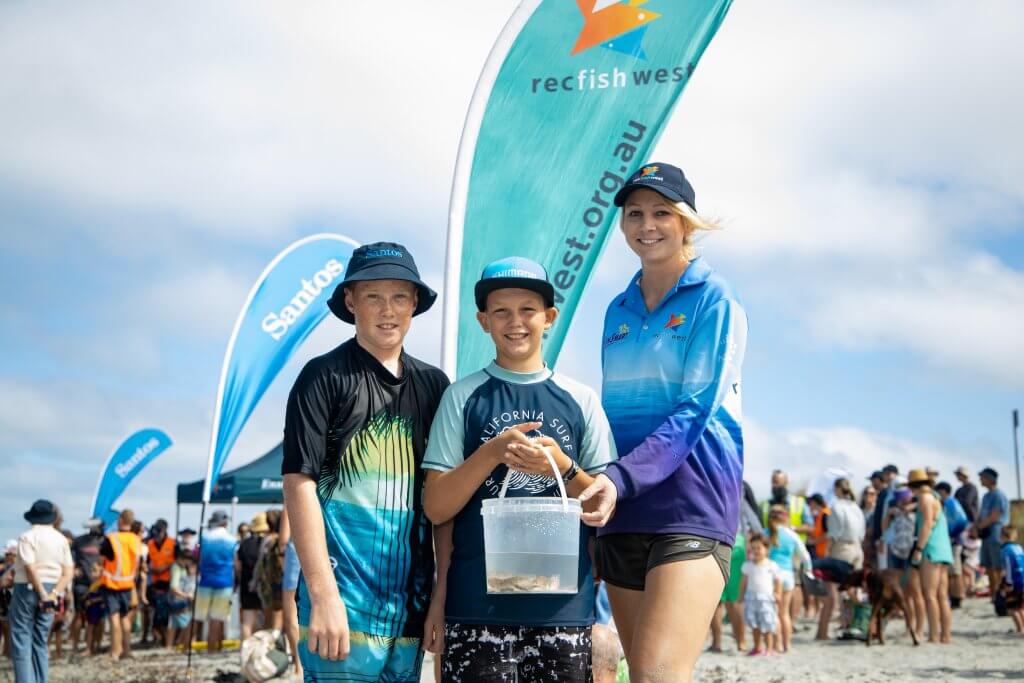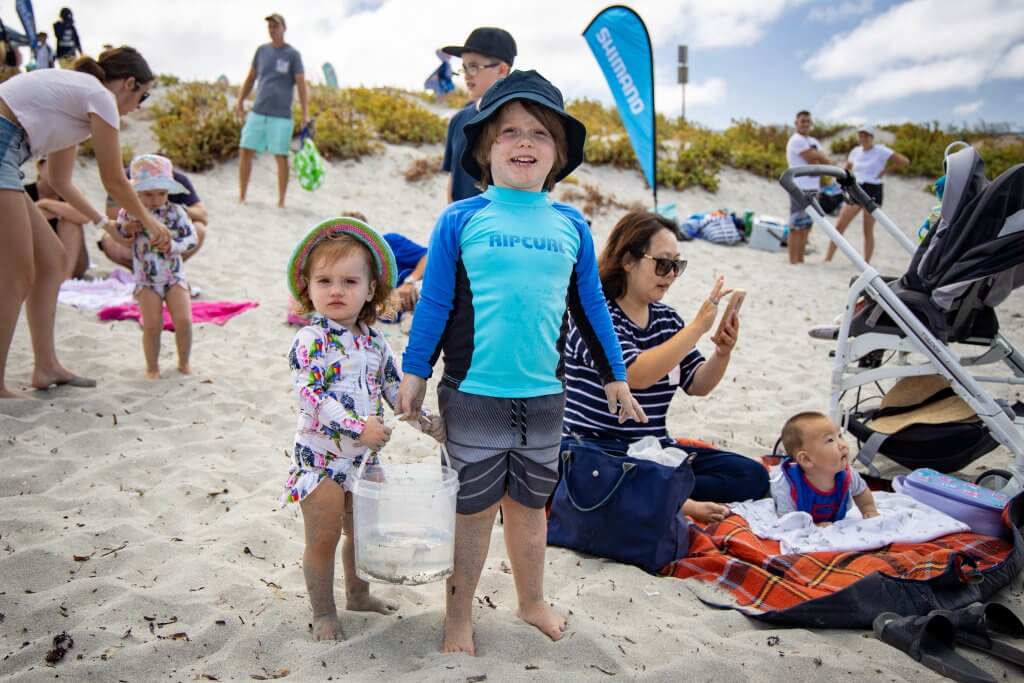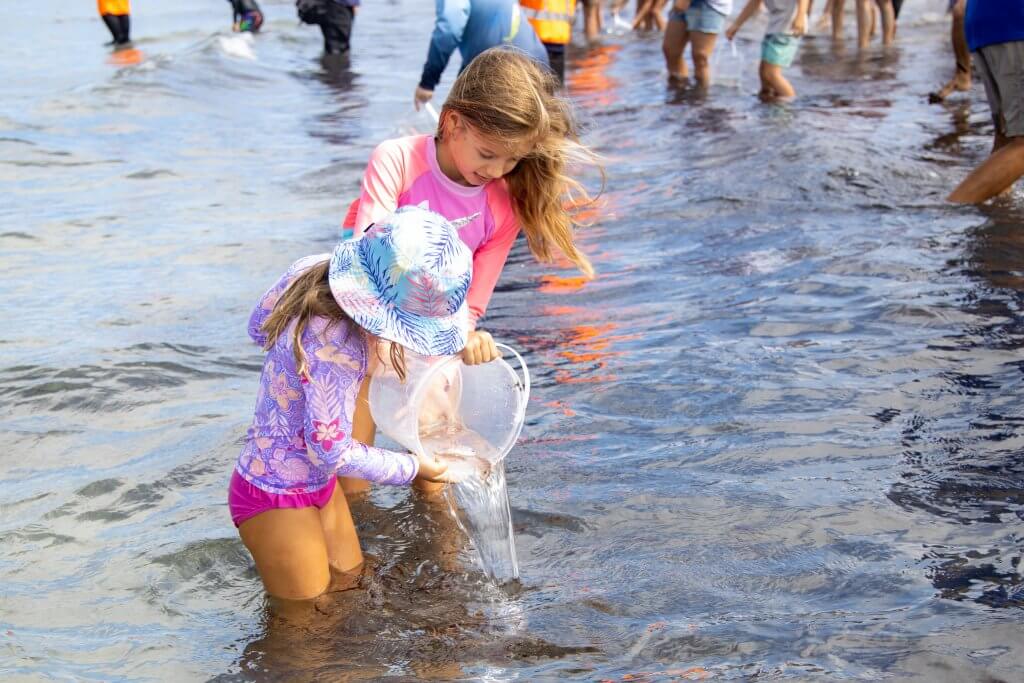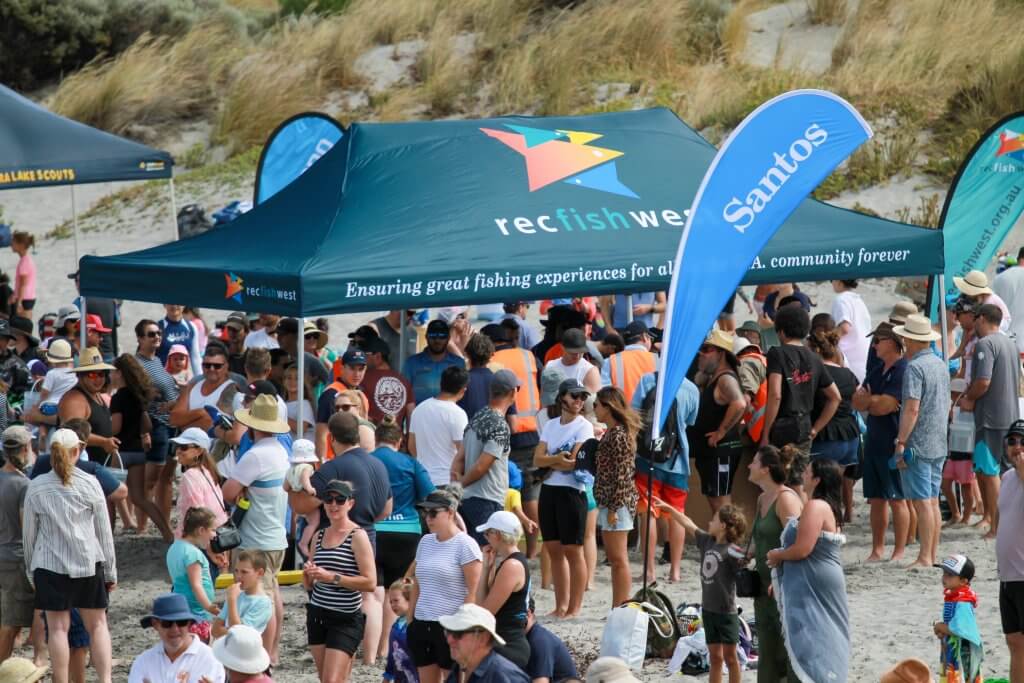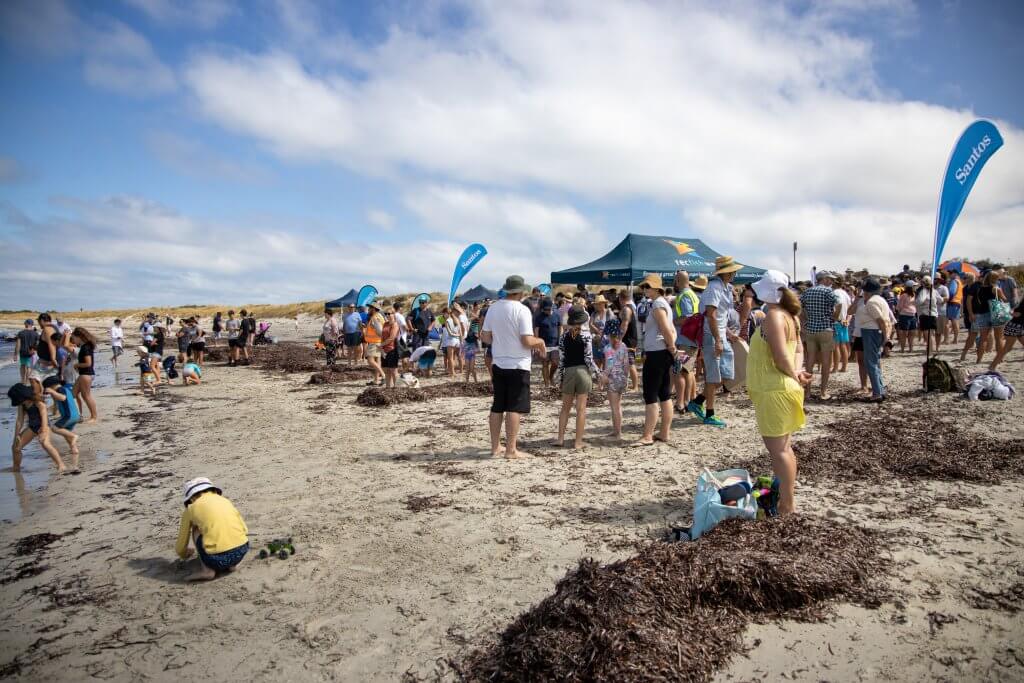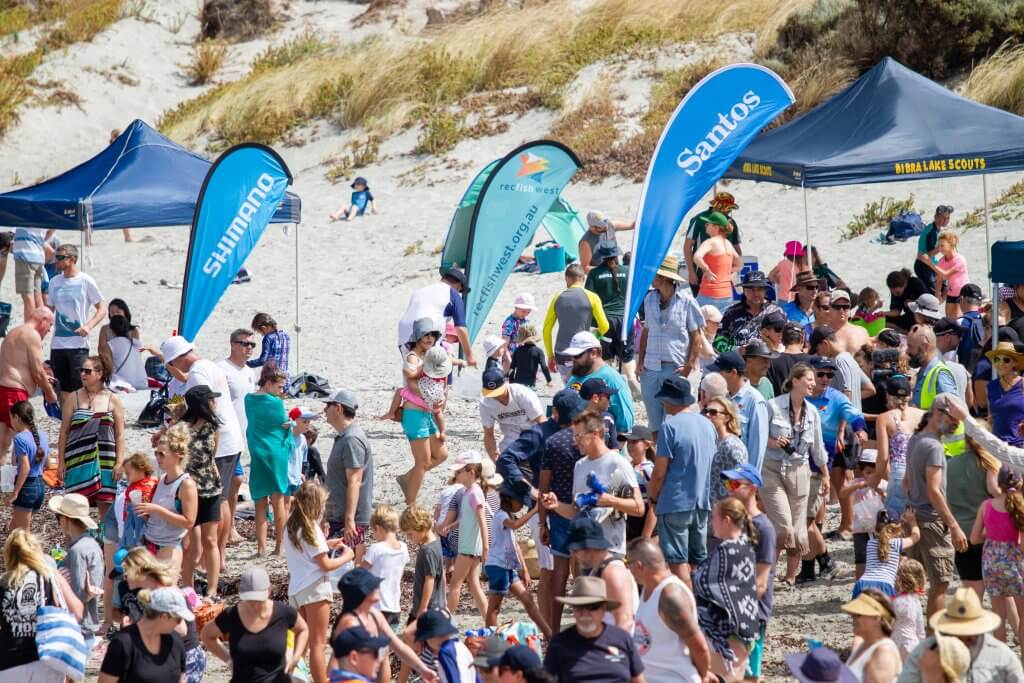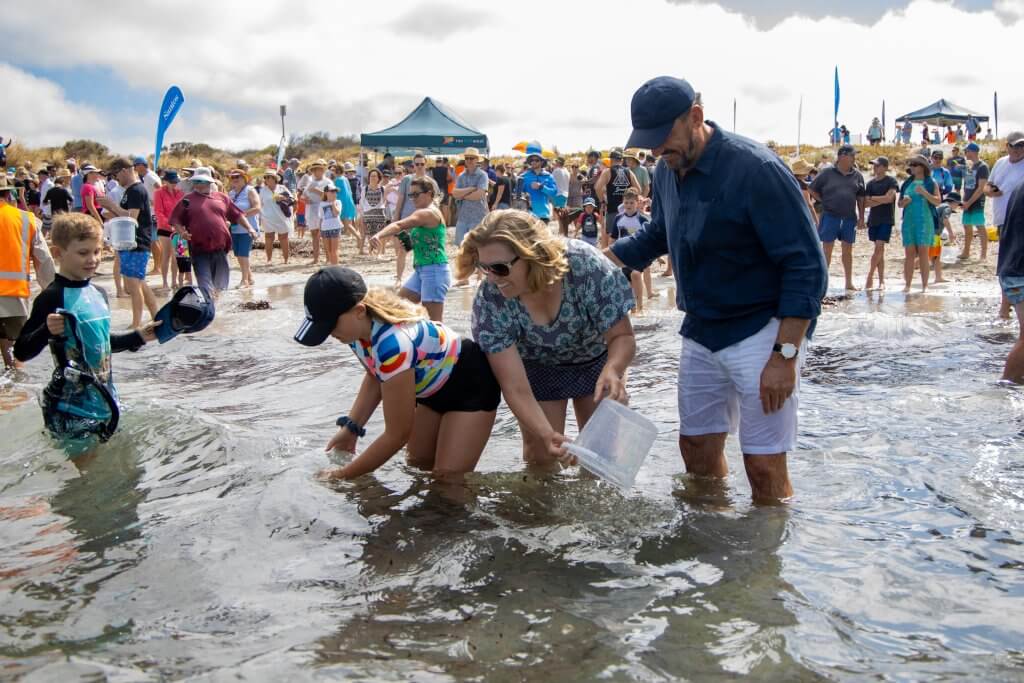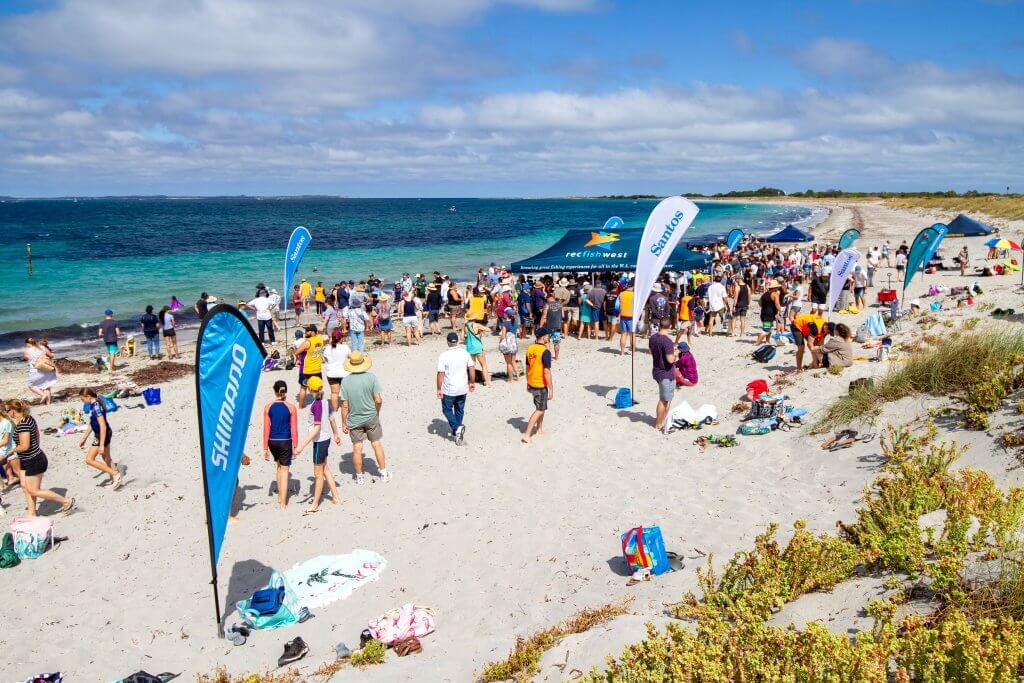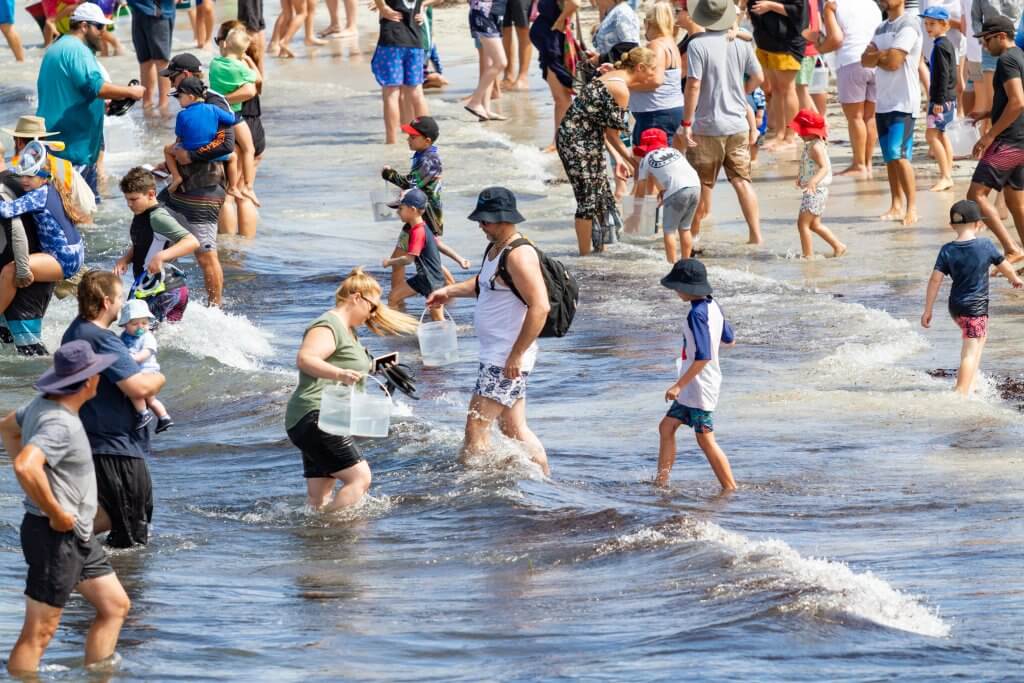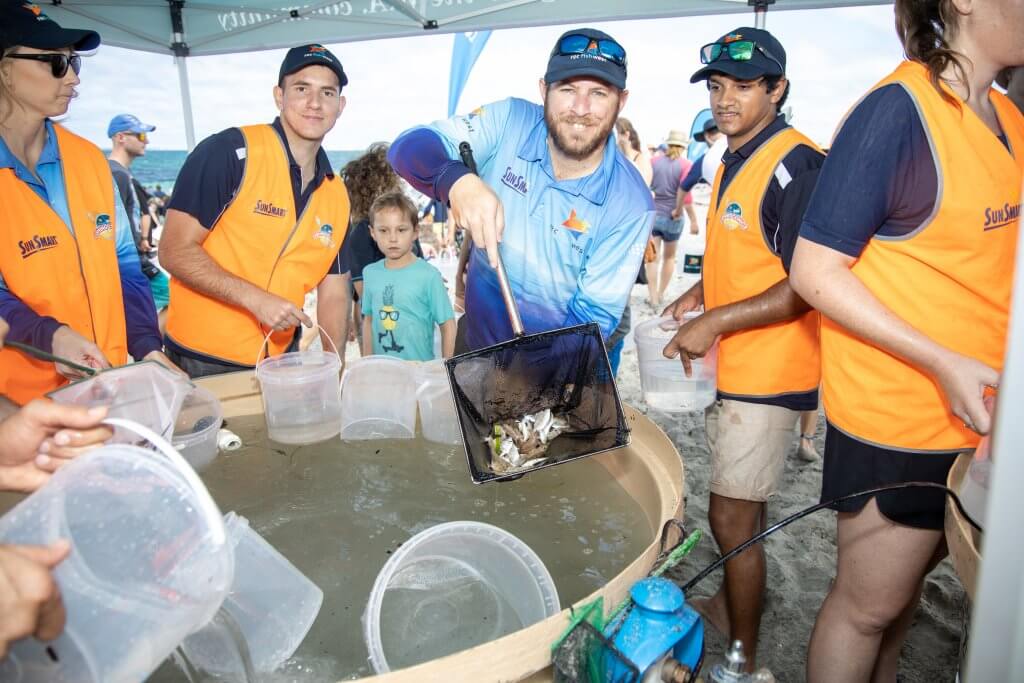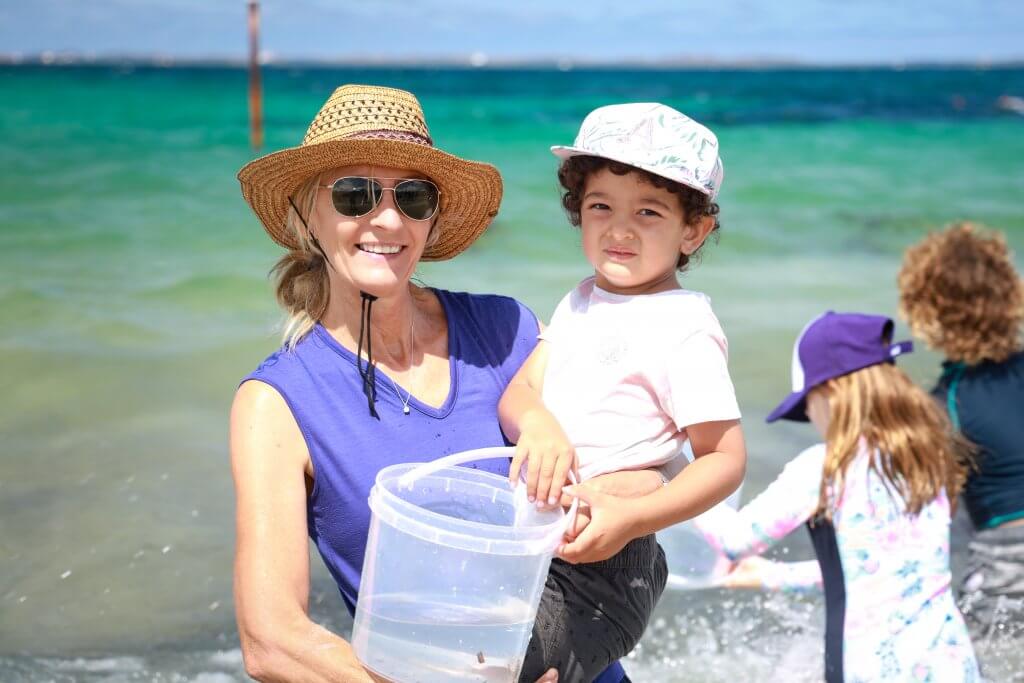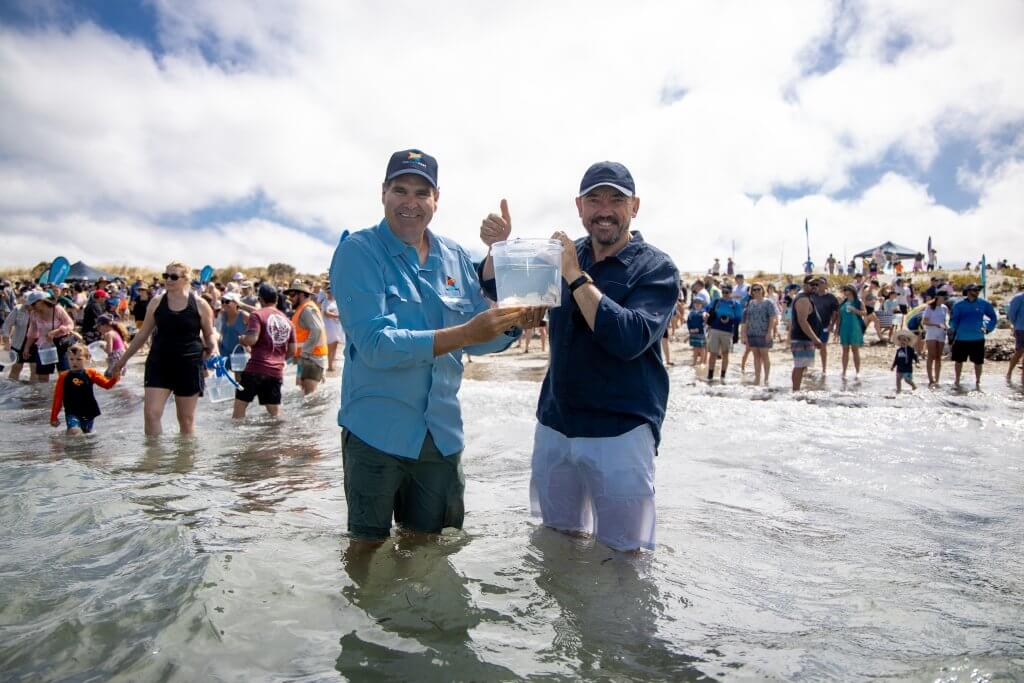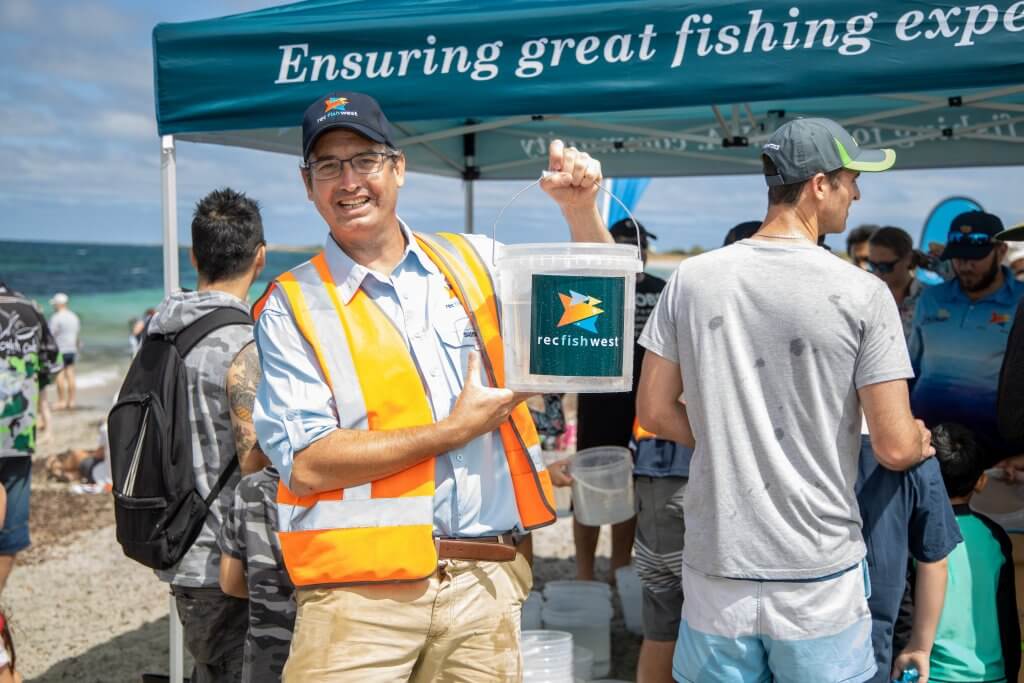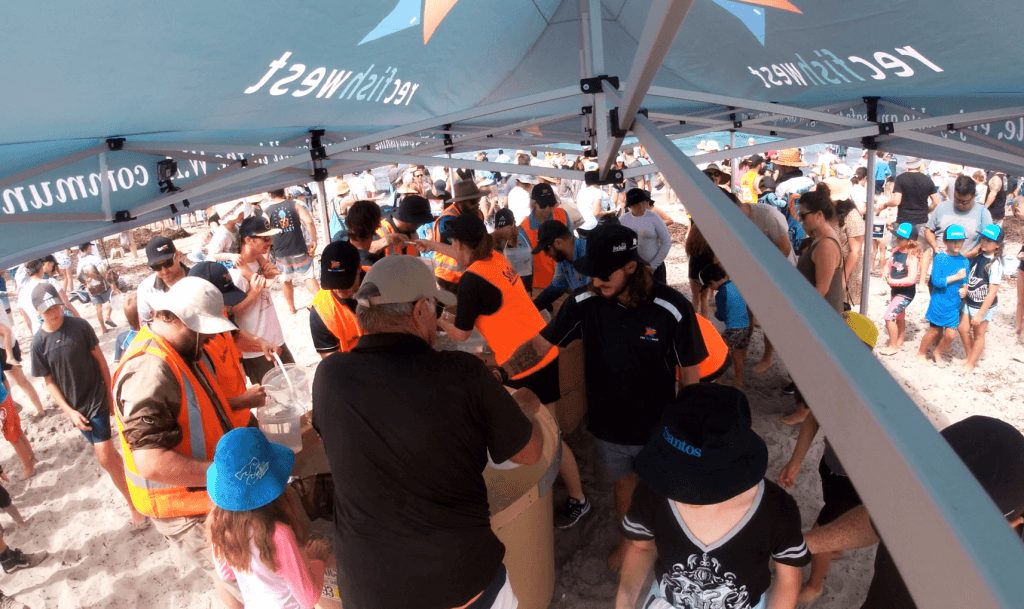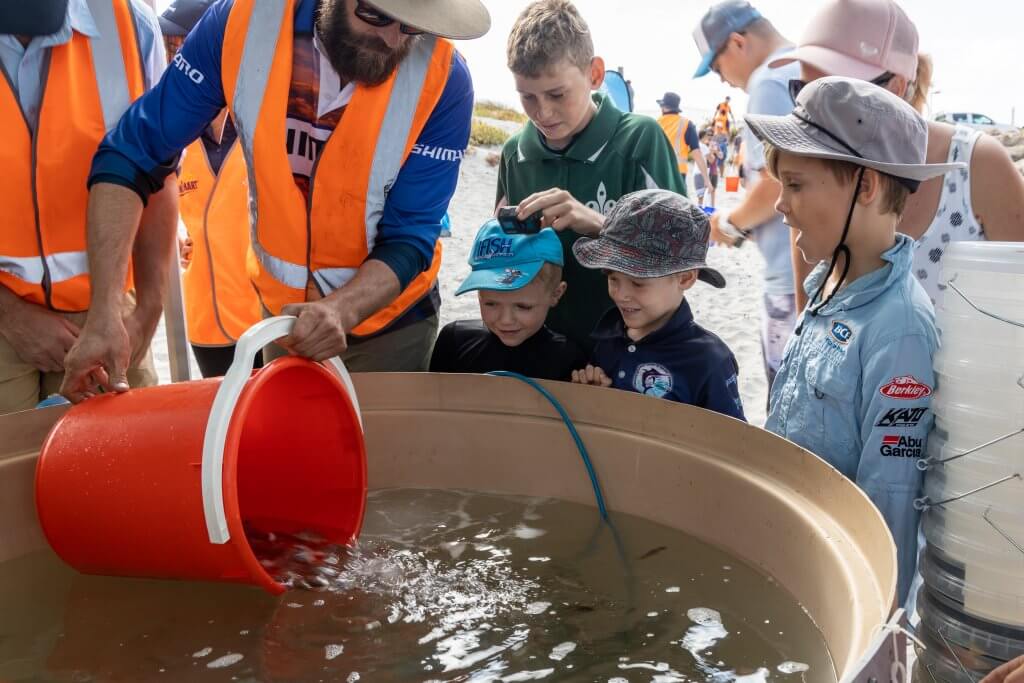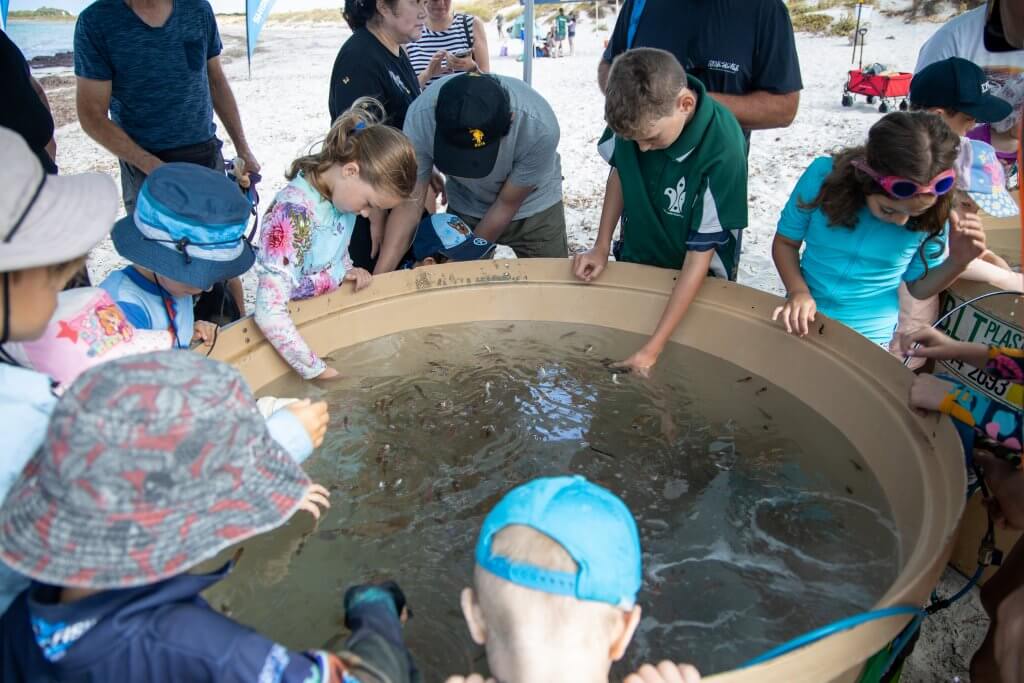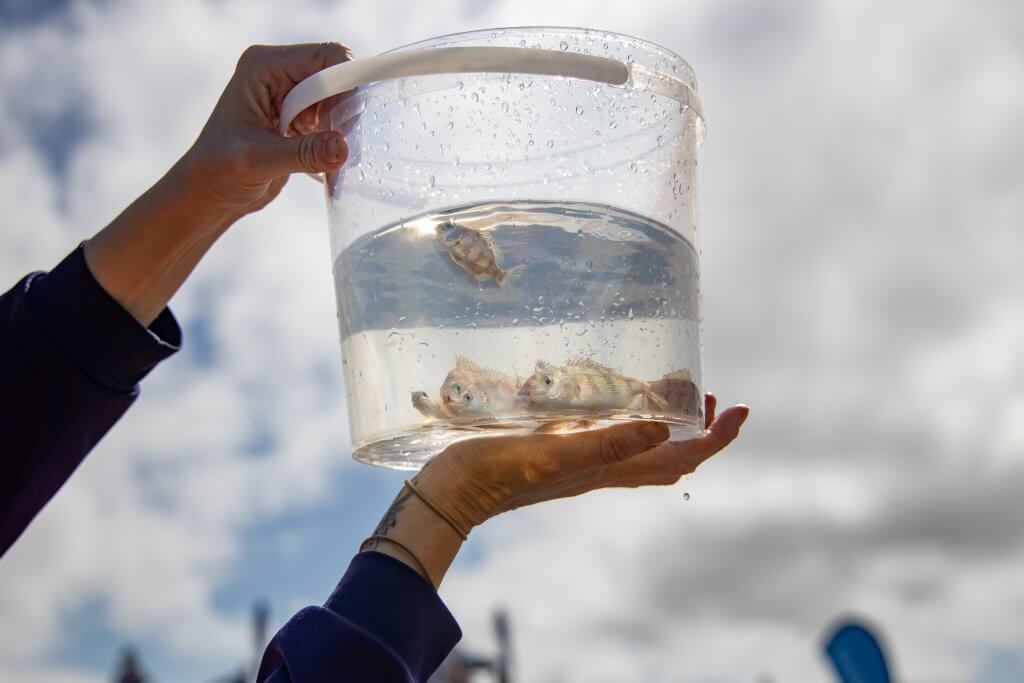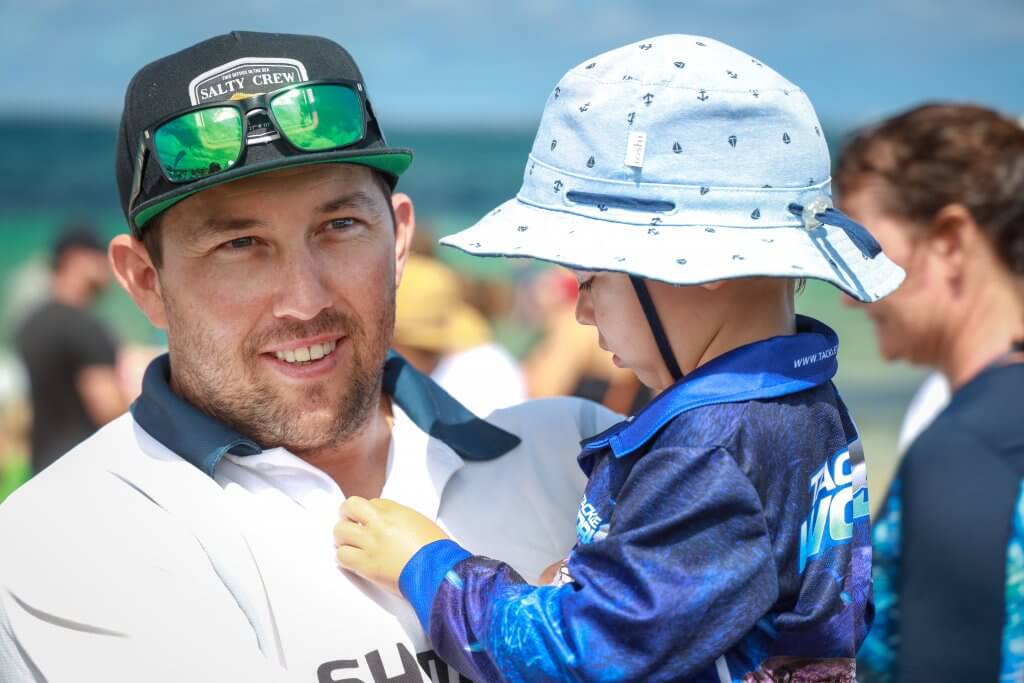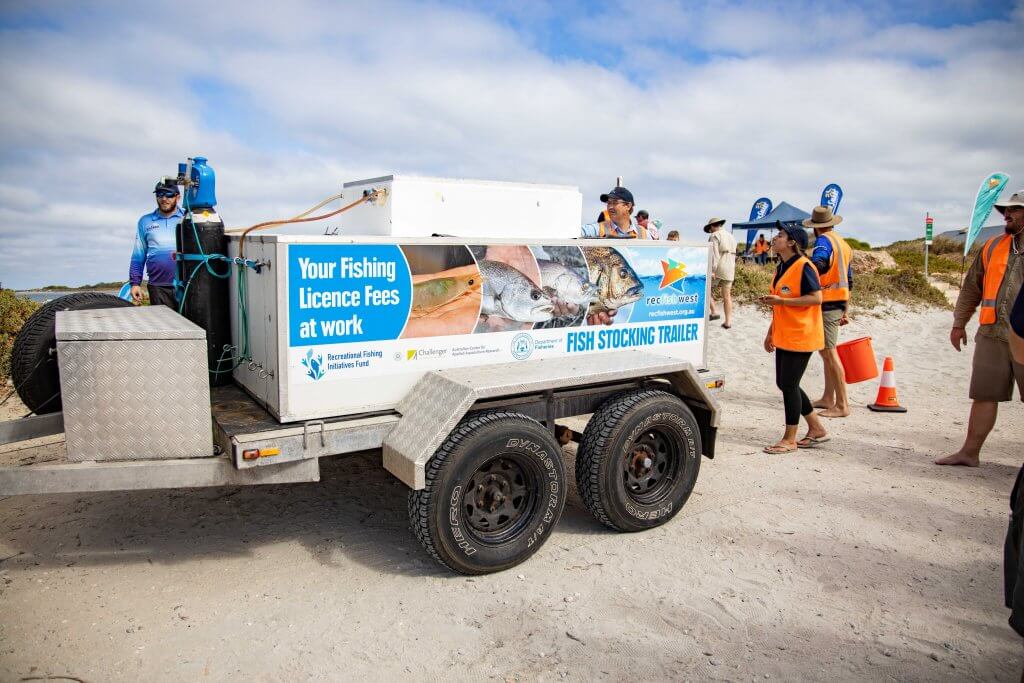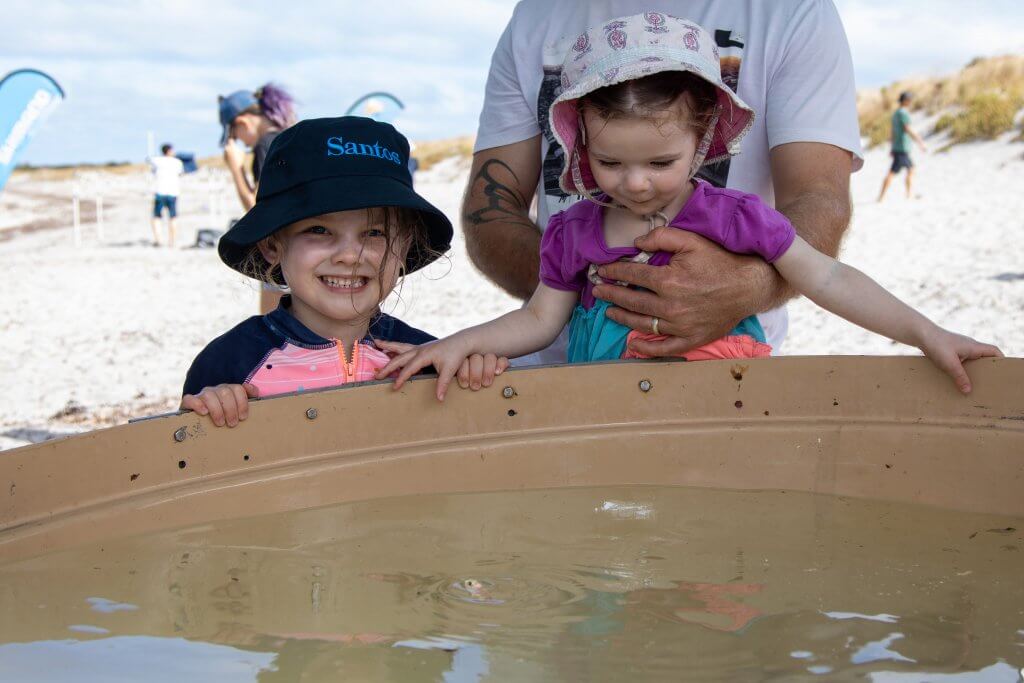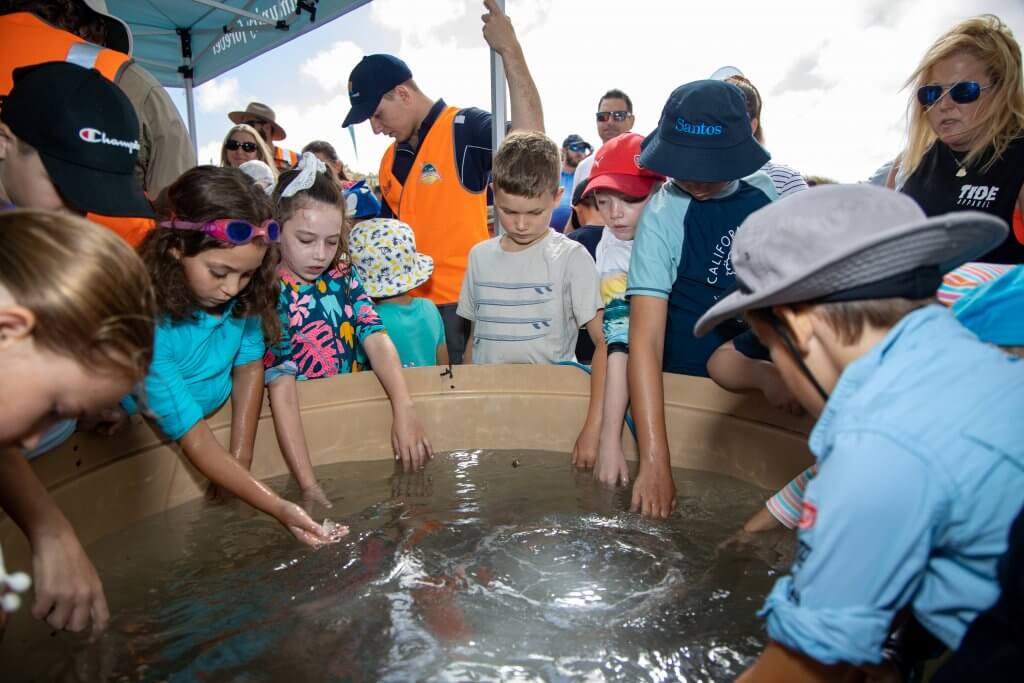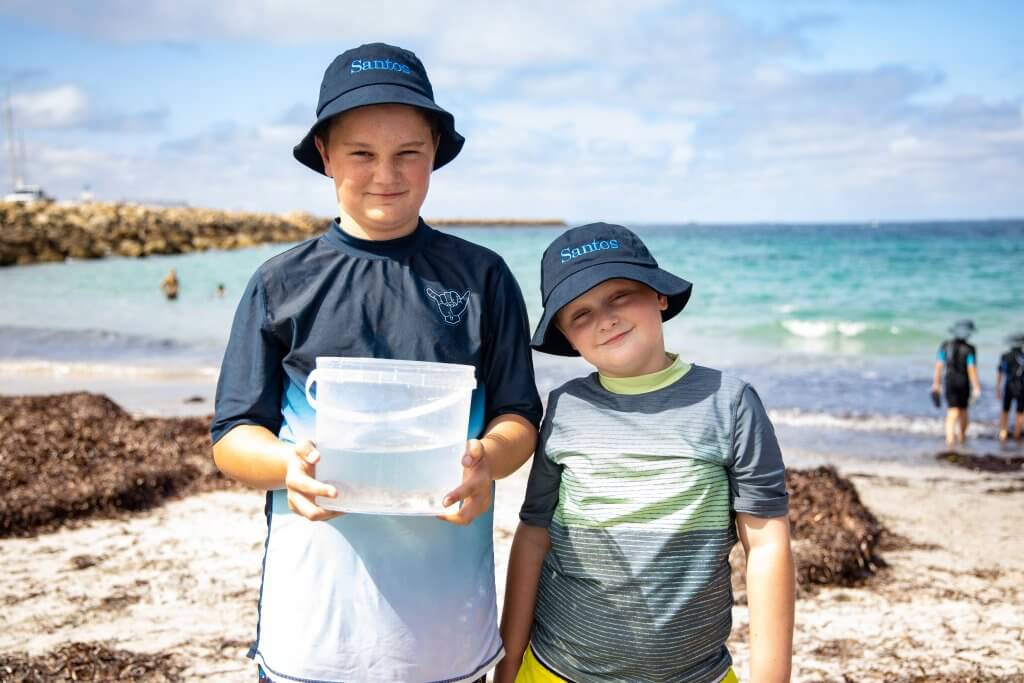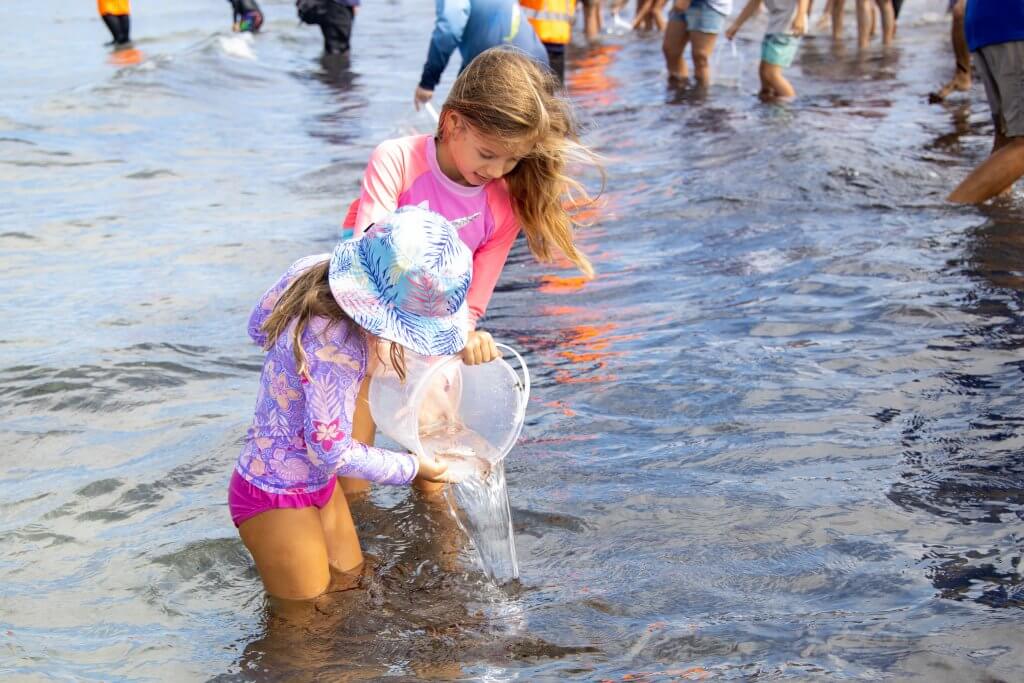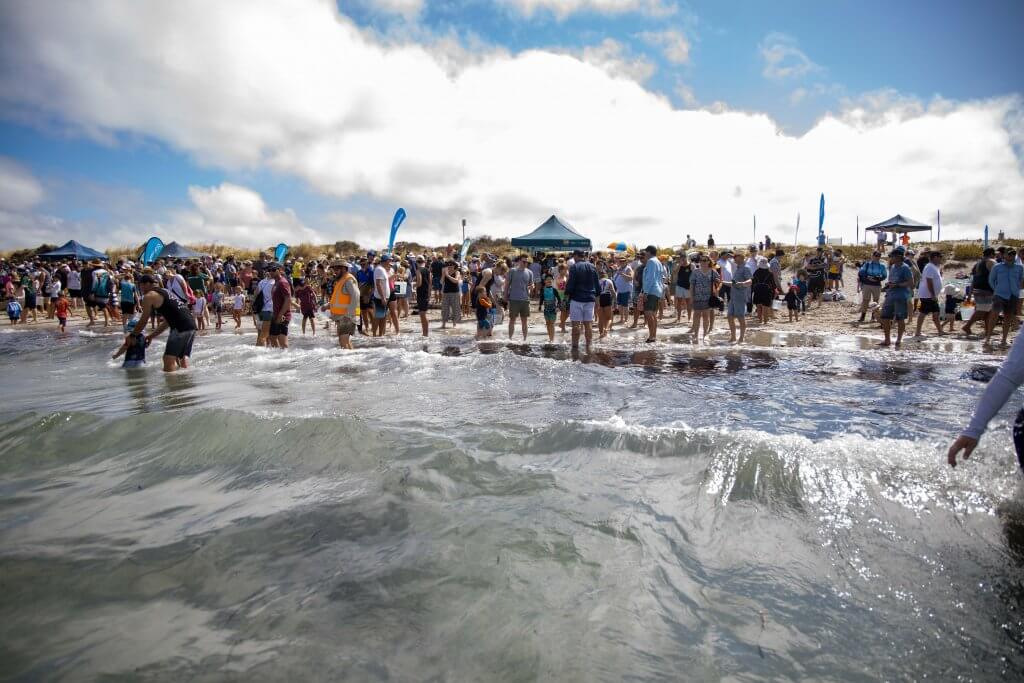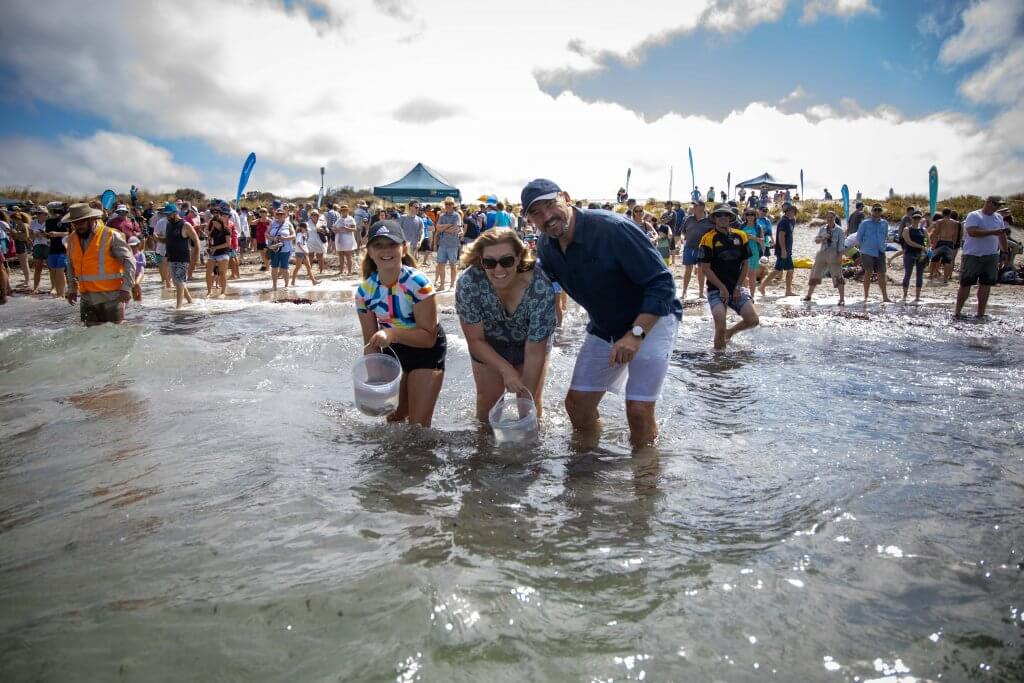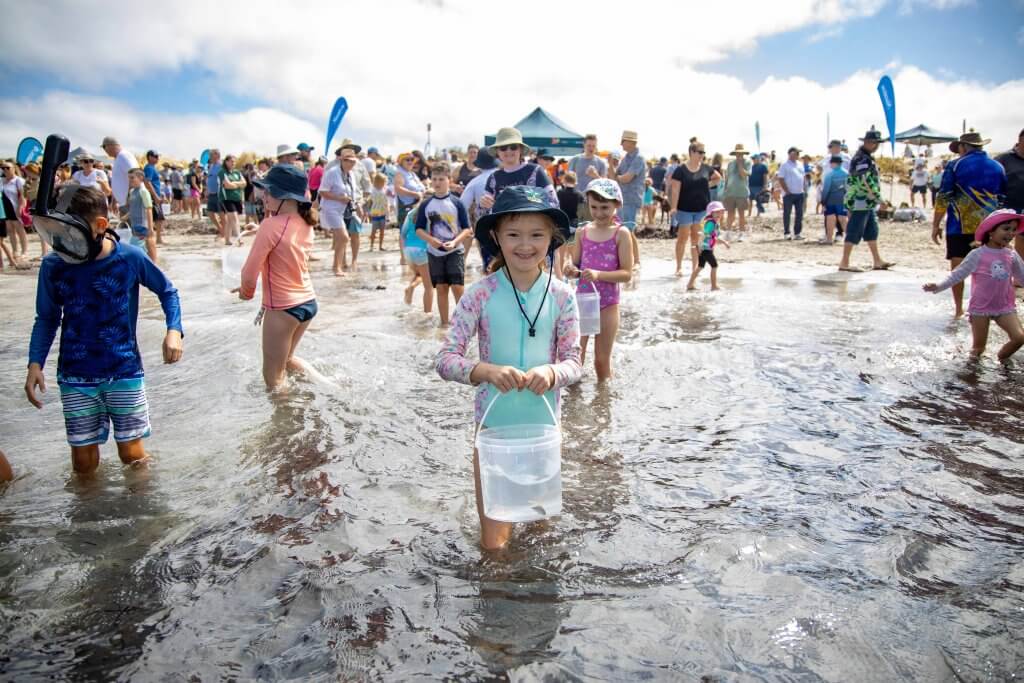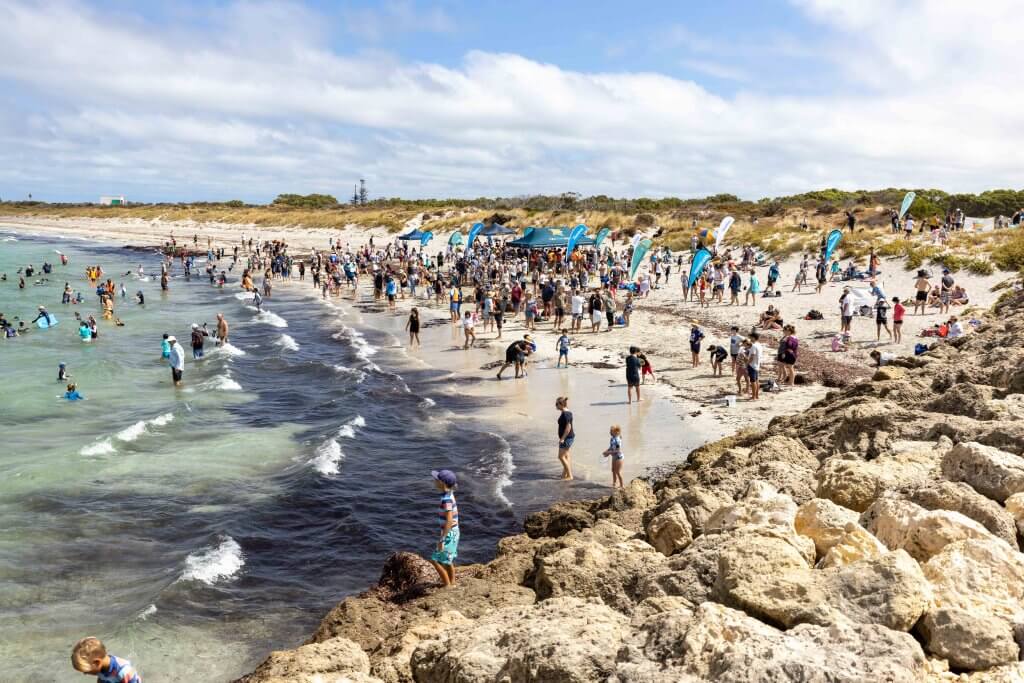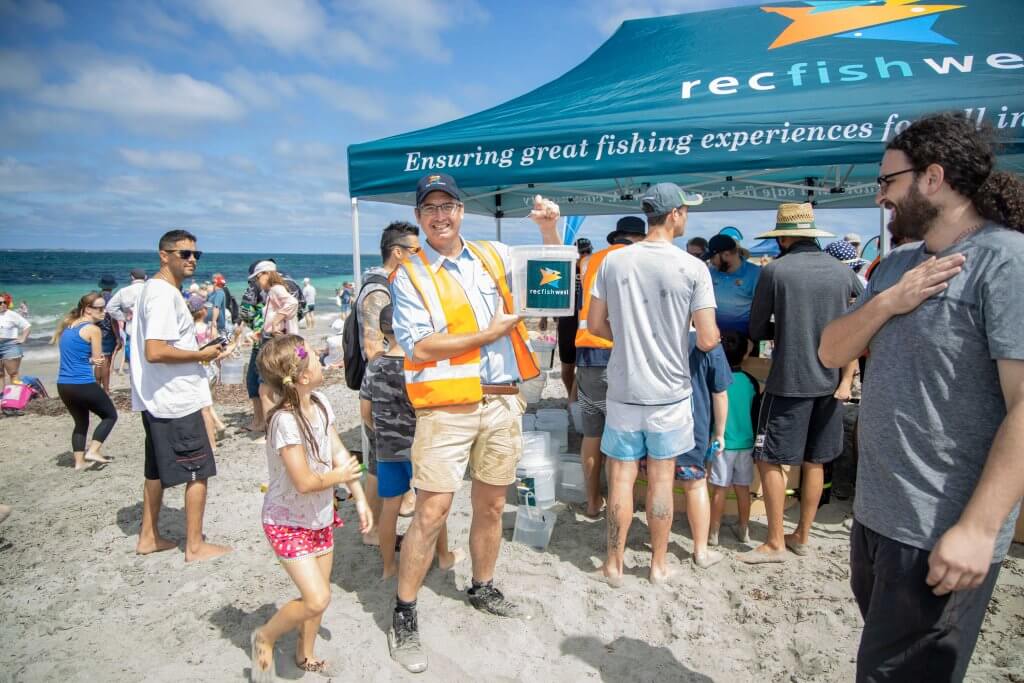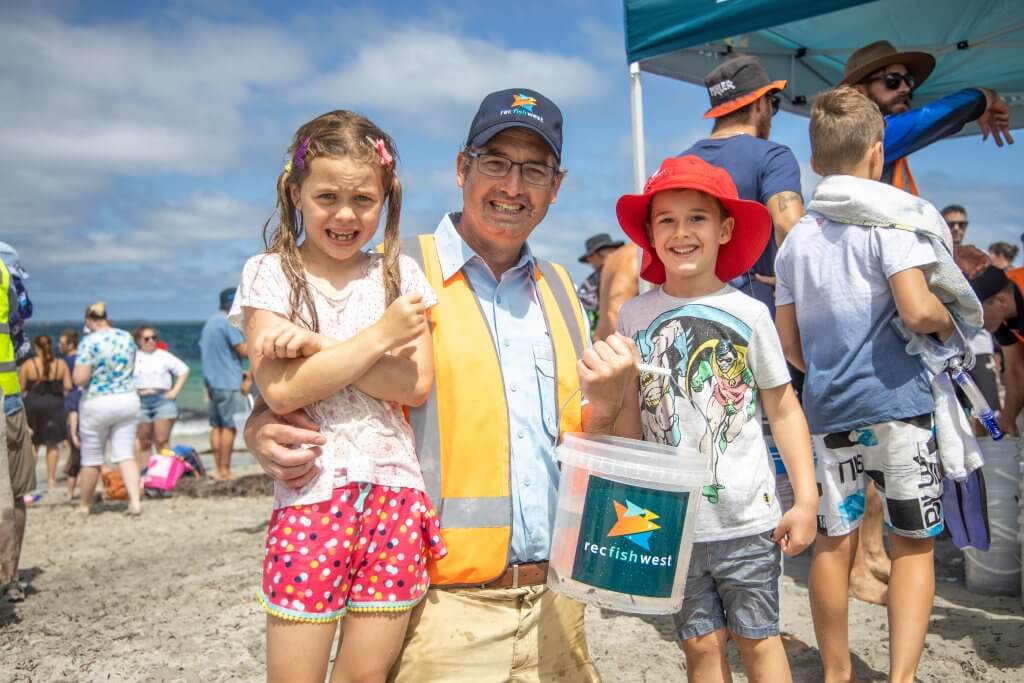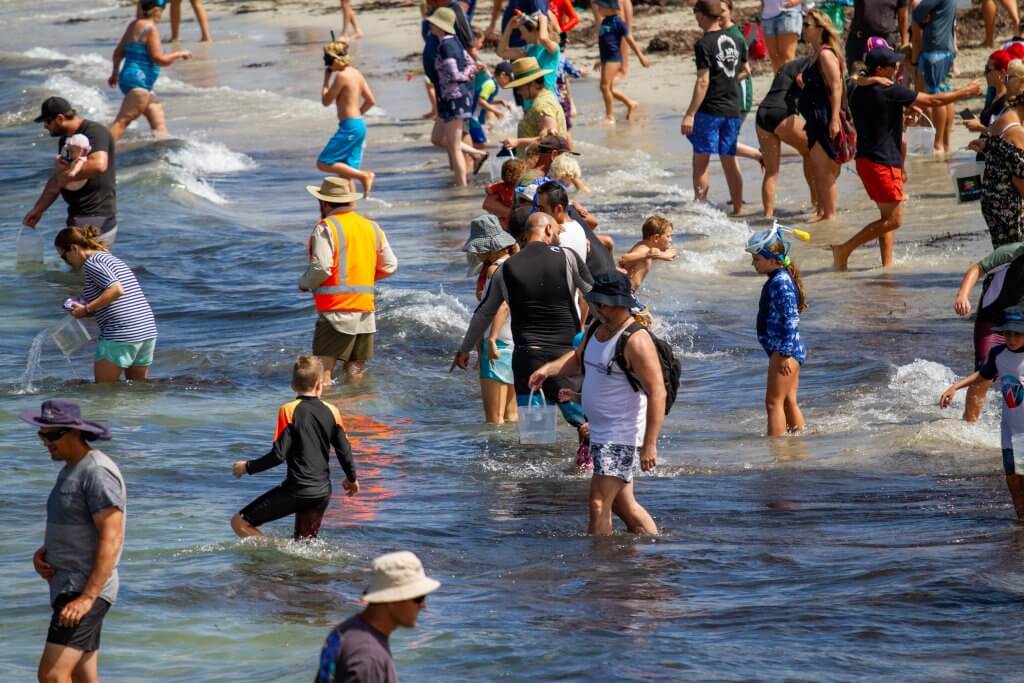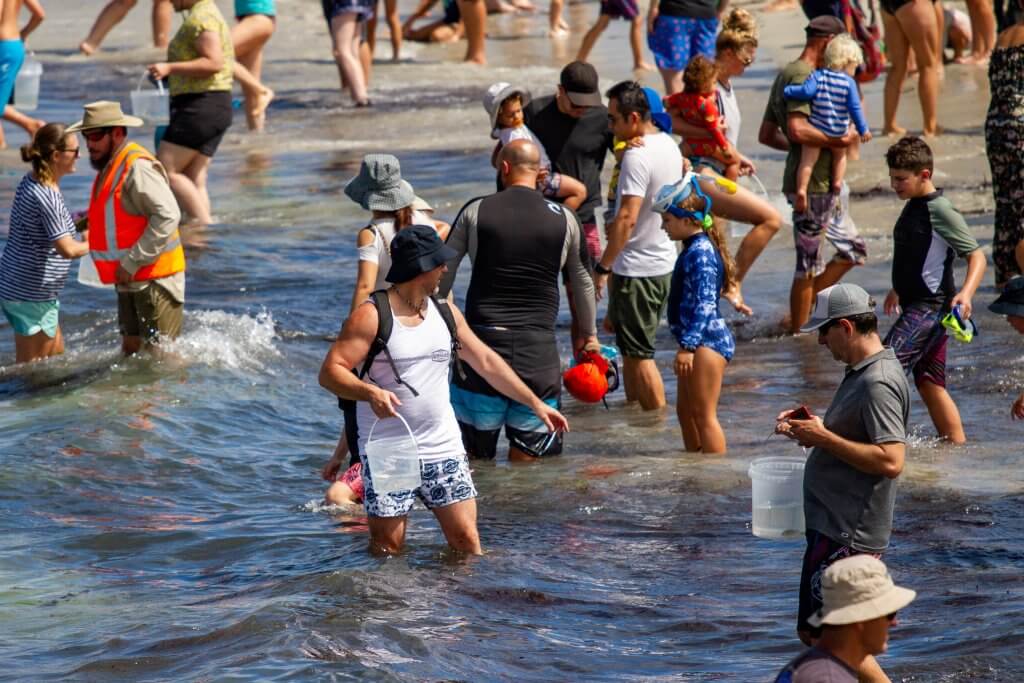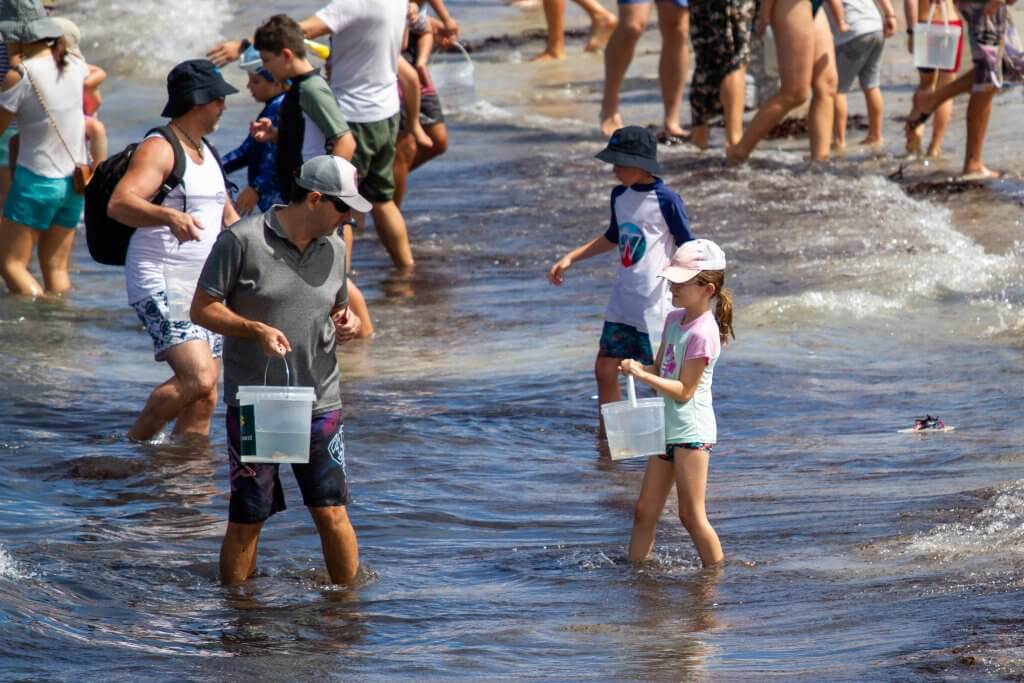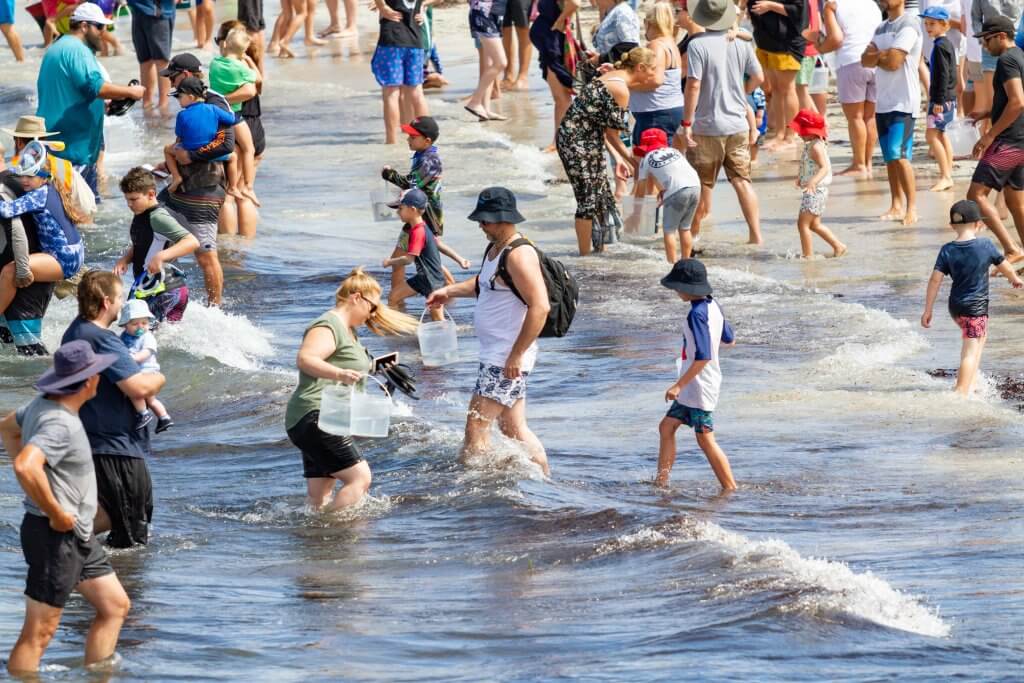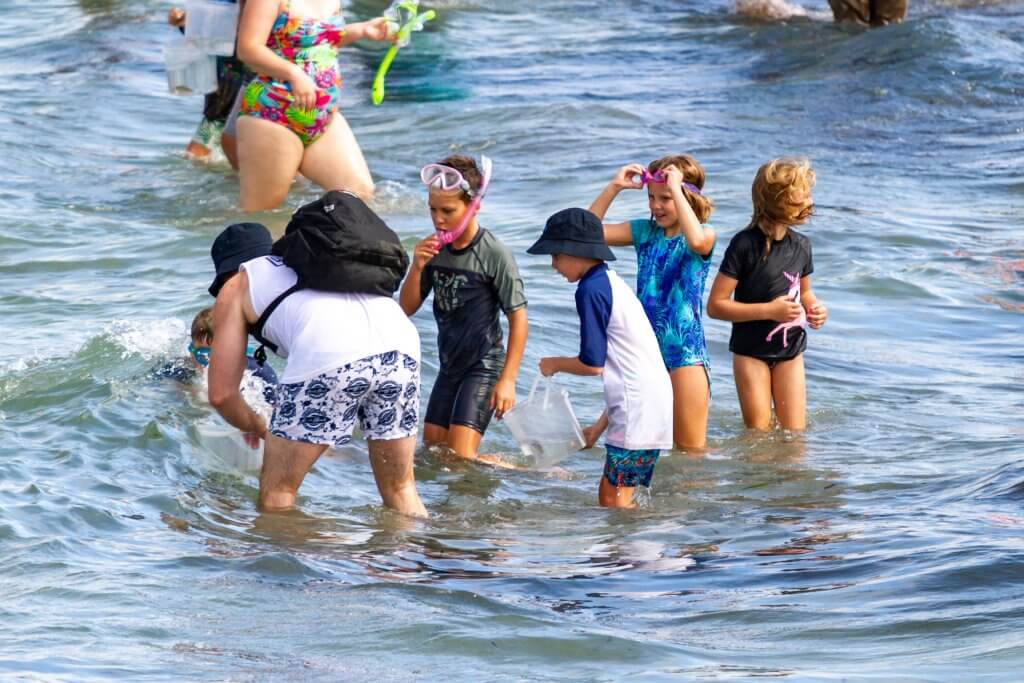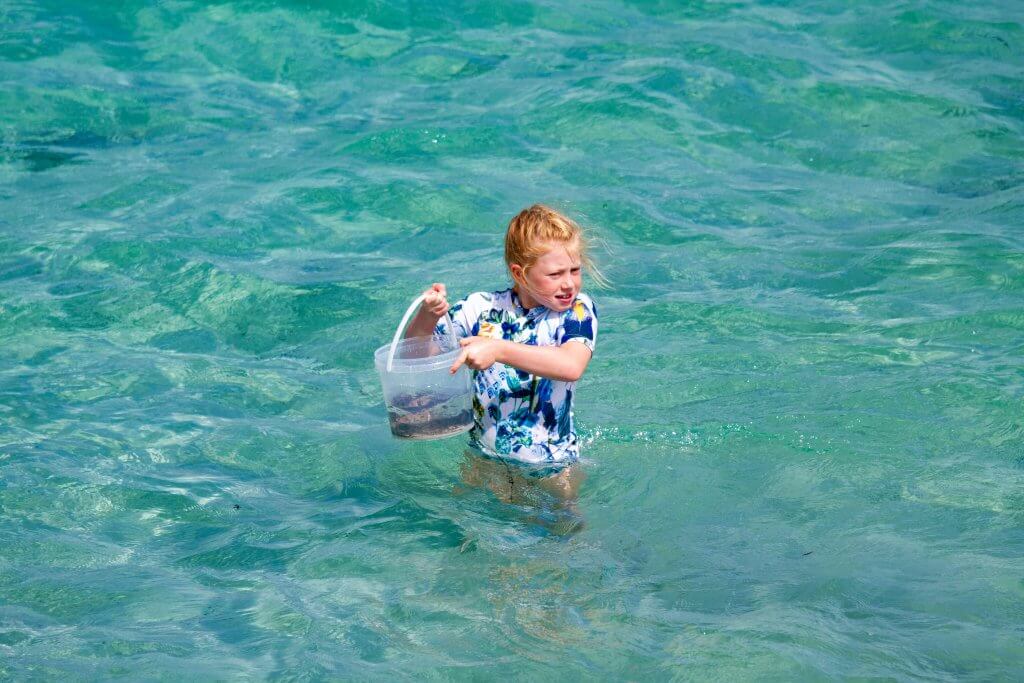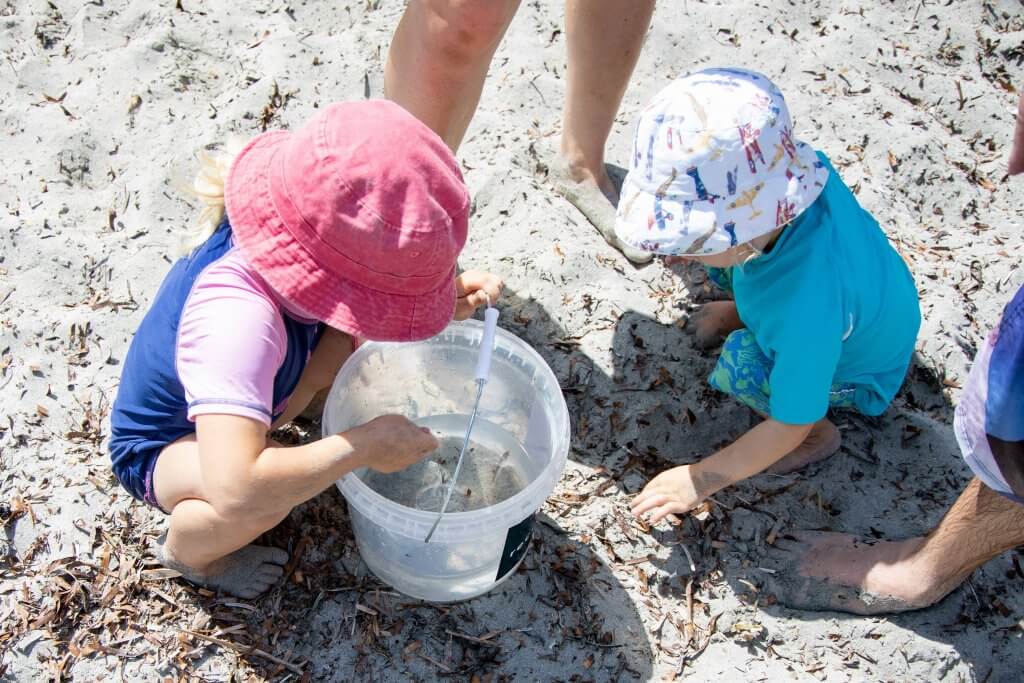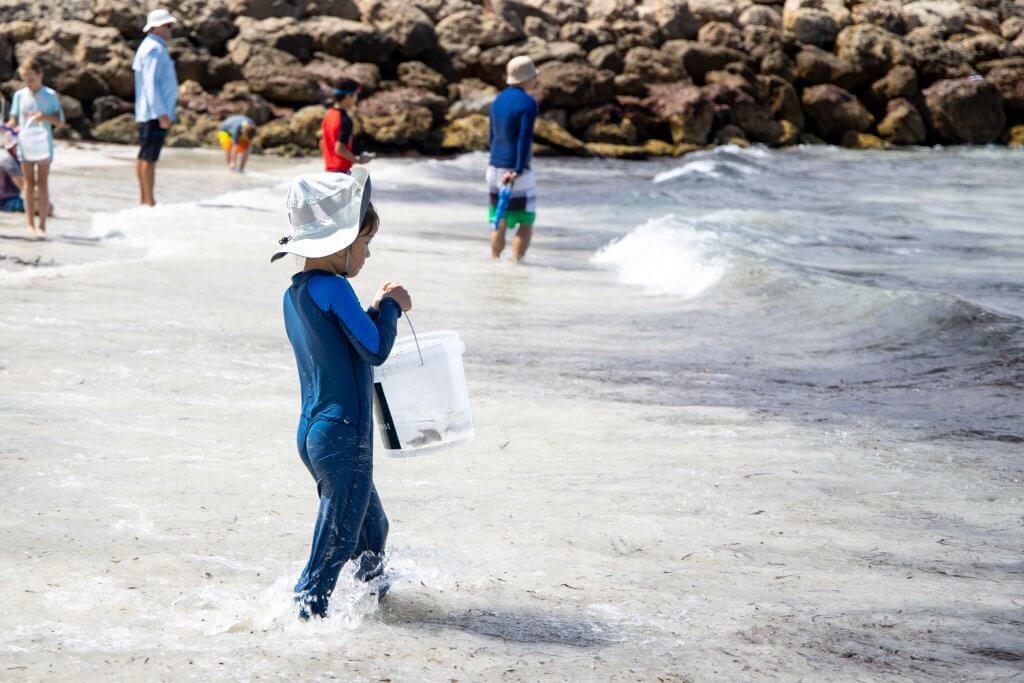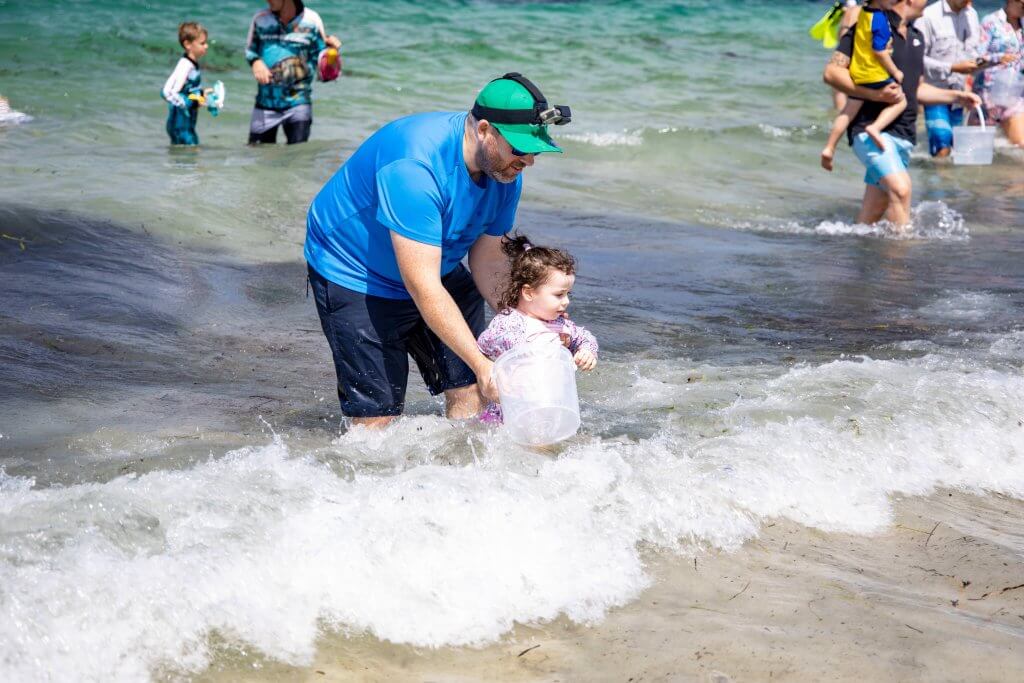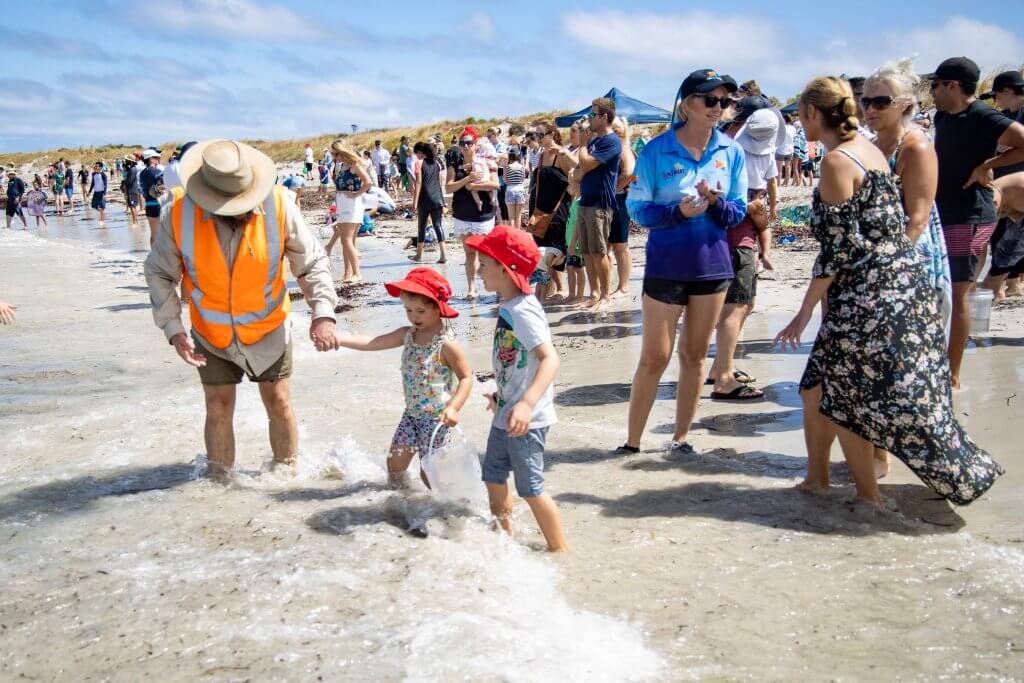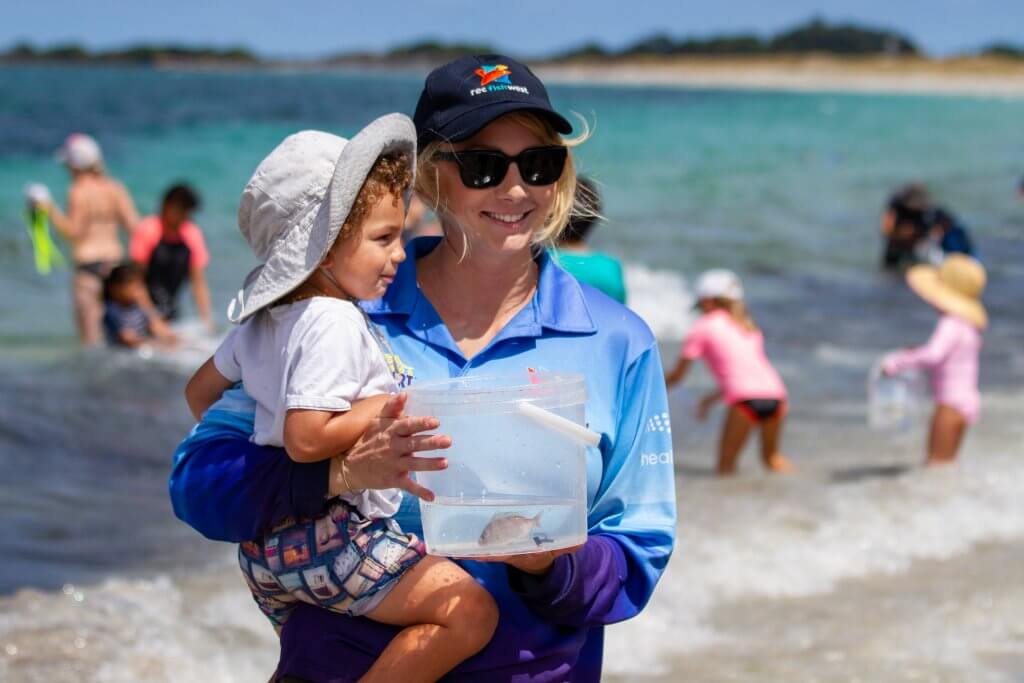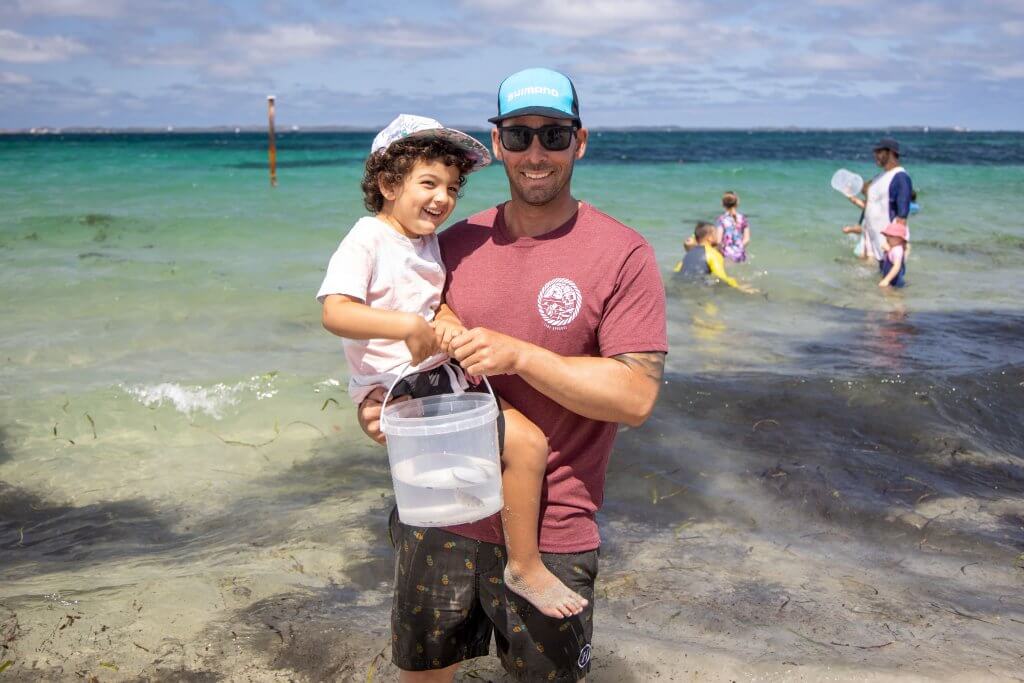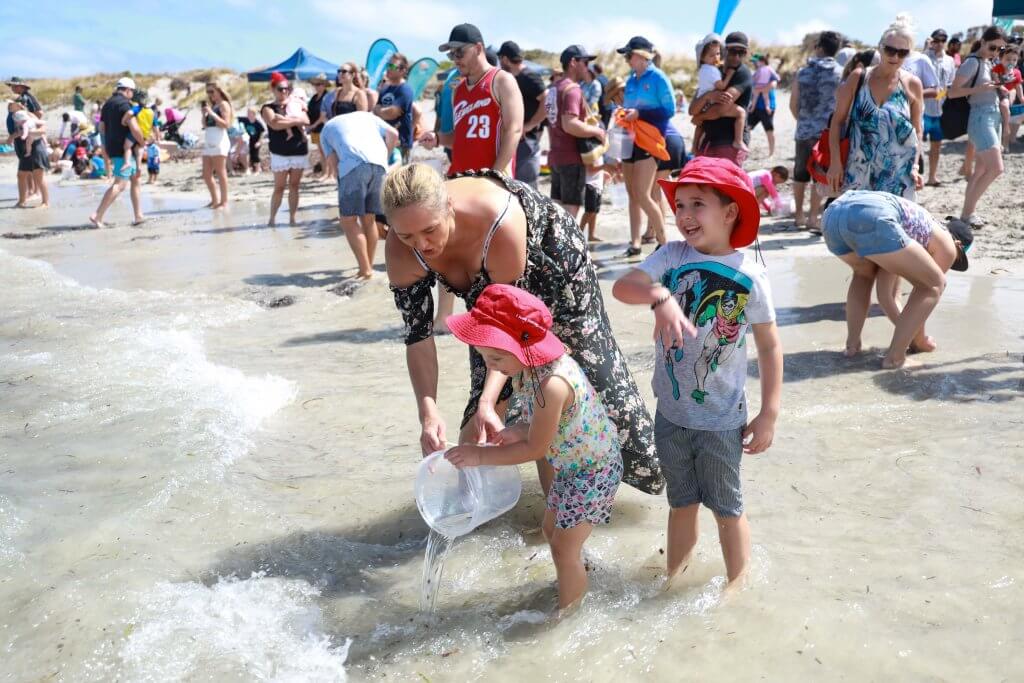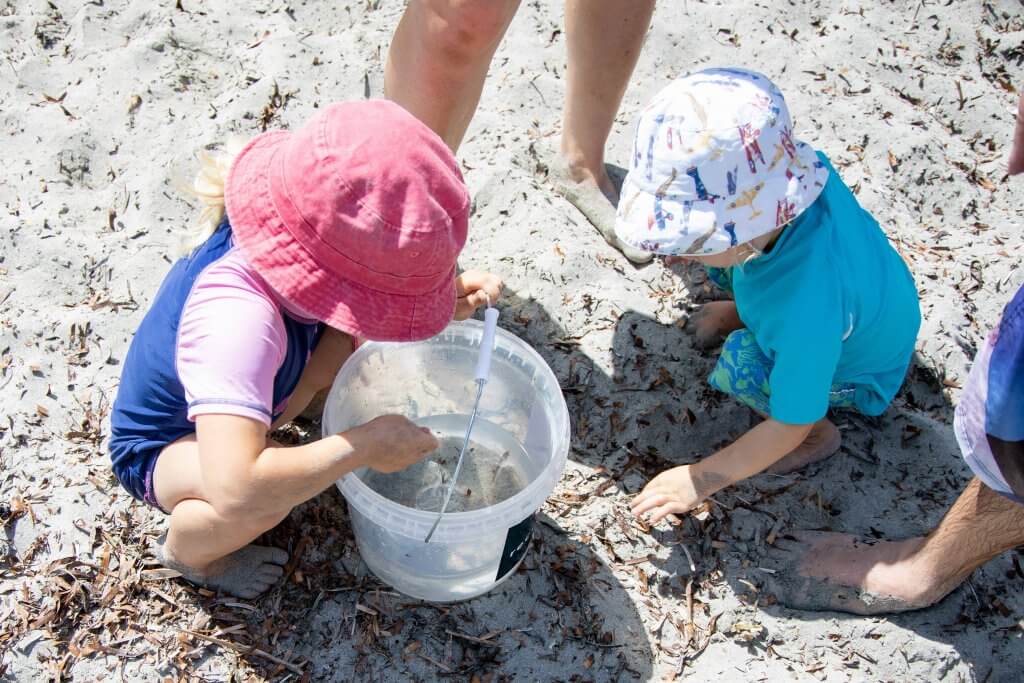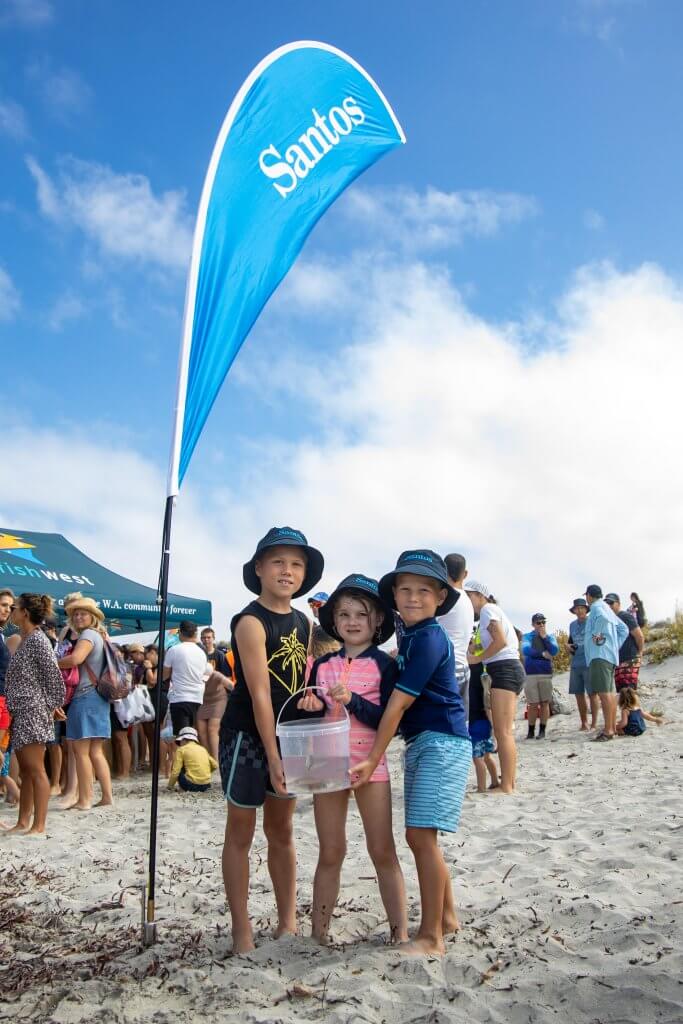Divers, families, boaties and fishers are being urged rally around next month for a community-driven seeding project to restore Cockburn Sound’s seagrass – an important nursery ground for many fish species. Continue reading “One million seeds to rejuvenate Cockburn Sound’s seagrass snapper sanctuary”
Tag: cockburn sound
Anglers show their passion for pinkies at Cockburn Power Boats Club night
Hundreds of keen fishers gathered at the Cockburn Power Boats Club to learn about the latest fishing techniques and science around the ever-popular Cockburn Sound pink snapper fishery. Continue reading “Anglers show their passion for pinkies at Cockburn Power Boats Club night”
Cockburn Sound’s pink snapper stocks on the line after State Government accepts Taskforce’s flawed report
Recfishwest is bitterly disappointed that our persistent and serious concerns around any development on Cockburn Sound’s environment and fish stocks have been repeatedly ignored by the Westport Taskforce. Continue reading “Cockburn Sound’s pink snapper stocks on the line after State Government accepts Taskforce’s flawed report”
A 20-year history of Recfishwest fighting to protect Cockburn Sound
Recfishwest has long-maintained that Cockburn Sound is an important and treasured fishery for many metropolitan fishers. Read the 20-year timeline below of our fight to protect the fishery on Perth’s doorstep.
Continue reading “A 20-year history of Recfishwest fighting to protect Cockburn Sound”
Cockburn Sound: Why it’s in a poor state and what we are doing to restore it to health
For many metropolitan fishers, Cockburn Sound is an important and treasured fishery on the city’s doorstep. Continue reading “Cockburn Sound: Why it’s in a poor state and what we are doing to restore it to health”
Snapper Guardians 2020 – the biggest and best yet!
What an awesome turn-out for Snapper Guardians 2020 – the biggest and best yet!
Hundreds of fishing families turned up to help us release 5,000 juvenile pink snapper into Cockburn Sound – showing how much they value the Sound and the fantastic fishery on Perth’s doorstep it supports. A massive thanks from us for all your support – it is a privilege for us at Recfishwest to be able run this event with the community.
The new Minister for Fisheries Peter Tinley came down with his family to show his and the Government’s support for this important initiative and we would like to thank the Department of Primary Industries and Regional Development (DPIRD) for collecting the eggs, hatching and rearing the fish in their aquaculture tanks and bringing the fish down on the day. We’d also like to thank our volunteers and our supporting partners Santos and Shimano Australia, who all helped make it happen.
Rest assured, we’ll be doing all we can to ensure this great event can happen again next year, the year after and for many years to come. Check out the gallery below – the big smiles everywhere says it all!
Check out some of the action!
It’s back again! Get ready for Snapper Guardians 2020
We are delighted to announce the Snapper Guardians event will go ahead again this year at Woodman Point in Cockburn Sound on Saturday, 8 February.
Continue reading “It’s back again! Get ready for Snapper Guardians 2020”
Creating seagrass pastures anew for Cockburn Sound
Last weekend, recfishing families joined Ozfish Unlimited at the Cockburn Power Boats Association to take part in an exciting seagrass restoration project called ‘Seeds for Snapper’.
The project aims to reseed Cockburn Sounds Seagrass meadows which support a wide variety of important fish species including whiting, pink snapper, garfish, calamari and blue swimmer crabs.
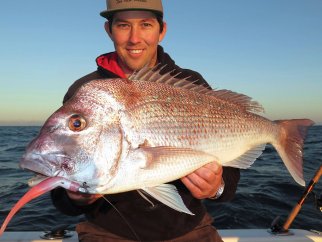
Fishers and divers helped with all elements of the project from the seagrass ‘fruit’ (seeds) collection, placing seeds in tanks with circulating seawater to separate the seed and dispersing of the seed in predetermined locations within Cockburn Sound. It is hoped that one million seeds can be processed, potentially restoring 10,000 m2 (1 Ha) of lost seagrass habitat per annum for the next three years.
The Seeds for Snapper Family Seeding Day builds on last year’s Seeds for Snapper project which saw approximately 200,000 Posidonia australis seeds collected and dispersed over three trial-seeding sites.
Three months after last year’s seeding activities, establishment and survival of the seagrass seedlings ranged between 6.5 per cent and 20 per cent, which is far better than what has been achieved in the past in attempting to establish new Posidonia australis seagrass meadows.
Below you can see the comparison on two dispersal sites.
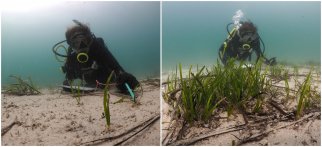
Recent research has demonstrated that direct seeding into areas of lost seagrass is likely to be the most cost effective method that may one day be scaled-up to make the biggest long-term difference. Read about it here.
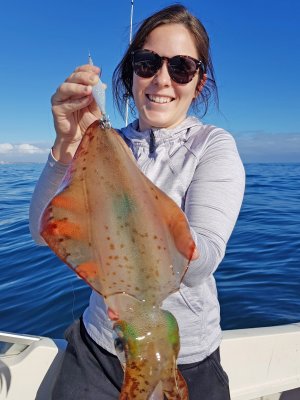
The WA community have a close affiliation with Cockburn Sound, with plenty of good work done previously to protect pink snapper stocks, including pushing for an extension to the annual pink snapper seasonal closure in Cockburn Sound and Warnbro Sound and our famous Snapper Guardians initiative.
The recfishing community greatly values the Cockburn Sound fishery and it’s great to see recfishers once again stepping up to look after the fish habitats that underpin our great fishing experiences.
Cockburn Sound pink snapper and seagrass fact file
Cockburn Sound hosts the largest pink snapper spawning aggregations in the West Coast Bioregion.
The seagrass meadows of Cockburn Sound are well recognised as critical foraging and nursery grounds for pink snapper and other fish, mollusc and crustacean species.
Cockburn Sound’s seagrass meadows have declined by nearly 80 per cent from 4000ha in the 1960’s to less than 1,000ha today.
That’s an area equivalent to 1,840 Optus Stadium football fields of seagrass habitat that has been lost in only a few decades. Important species affected by the seagrass loss include not only pink snapper, but others such as squid, garfish and blue swimmer crabs.
Appreciation of the role seagrass meadows play in providing great fishing opportunities is growing in WA due to increased understanding of the critical link between our seagrass habitats and coastal fisheries.
Taking the Westport Taskforce to task on its environmental credentials around Cockburn Sound
Last week, the Westport Taskforce released a project update spruiking Westport’s environmental credentials. Continue reading “Taking the Westport Taskforce to task on its environmental credentials around Cockburn Sound”
Westport: Putting dollars before Cockburn Sound’s marine environment?
Recfishwest is calling for an urgent review into how the Westport Taskforce determined its five options for the future of the WA freight trade.
The taskforce recently pumped out a series of e-newsletters outlining the five shortlisted options – all of which involved building a new container port in Cockburn Sound.
Having sifted through their rationale for these options, it appears to us that the taskforce has gone against the community’s wishes and placed “commercial viability” of any port development way above the environmental impact on the Sound.
The taskforce came up with its shortlist by rating each proposed development option against a series of criteria – each ranked by importance through what it called a ‘multi-criteria analysis’ (MCA).
Unfortunately for the environment, the weightings used in this process were severely biased towards economic considerations at the expense of environmental ones as the table below shows. In the MCA weightings, the marine environment was ranked way down the list of importance at fourth and the terrestrial environment even further down at equal fifth.

Yet, this flies in the face of a community survey the taskforce carried out, which showed the environment was the community’s number one concern with 55% of respondents listing the environment as their primary concern in any port development.
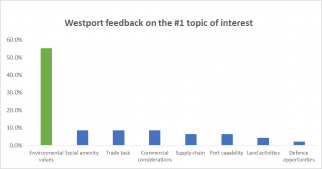

Furthermore, a Westport Taskforce report released in December 2018 (link below) rated Cockburn Sound with significantly more environmental and social value than Fremantle or Bunbury – both locations which figured as alternative locations for an expanded port in the Taskforce’s original list of options.
Find the Westport Taskforce Report from December 2018 here
In an attempt to justify this disregard of the Sound’s environmental values and the community’s wishes, the taskforce gave this statement, “It is critical that Westport delivers an outcome that is financially responsible for the State…the final option must be commercially viable and affordable for the long-term”.
In light of this statement, Recfishwest has two questions for the taskforce:
- Why is the taskforce seemingly placing commercial viability above Cockburn Sound’s sustainability?
- On whose authority can it say the pursuit of dollars should come above protecting the home to the largest spawning aggregations of pink snapper on the West Coast and numerous fish species (including blue swimmer crabs) that rely on the Sound’s seagrass meadows for their survival?
Governments can only make good decisions when they are provided with good advice and the weightings used in the taskforce’s shortlisting process make it impossible to provide the government with good advice.
The taskforce appears to have made an assumption on behalf of the State Government that prioritises economics over the environment. The Government needs to be clear about whether they agree with Recfishwest and the community that Cockburn Sound’s precious marine environment must come first or whether they back the taskforce’s view that “commercial viability” trumps sustainability.
There are many places a port can be built, however, there is only one Cockburn Sound, which provides great, accessible fishing experiences for tens of thousands of recreational fishers every year. When the environment takes a back seat, we all lose.
We are therefore calling for an immediate review of the weightings used in the MCA process and greater transparency about the criteria, scores and justifications contained in the process.
Cockburn Sound is under enormous cumulative pressure from a whole range of sources, but rest assured we will always fight to ensure the Sound is protected.
Click here read our position on Protecting Cockburn Sound and the Outer Harbour project
